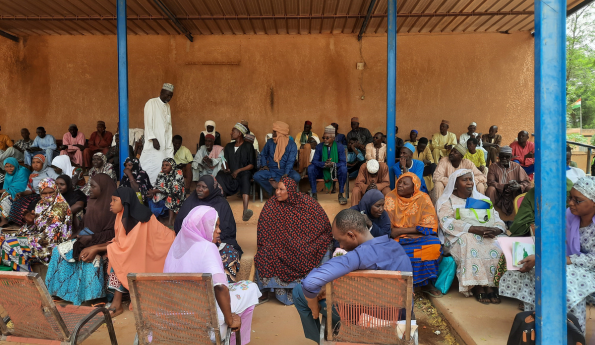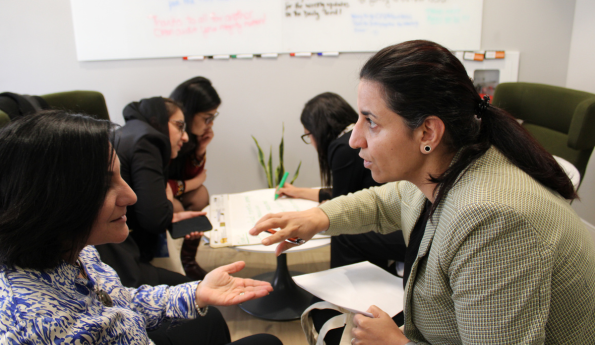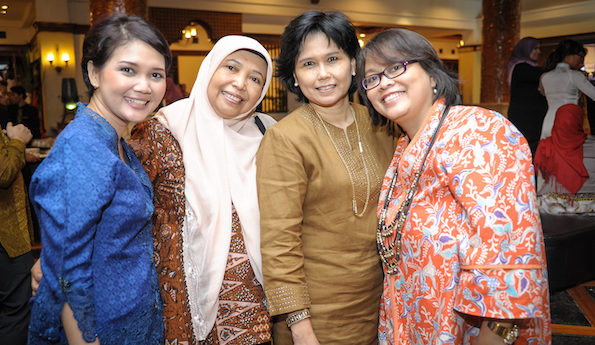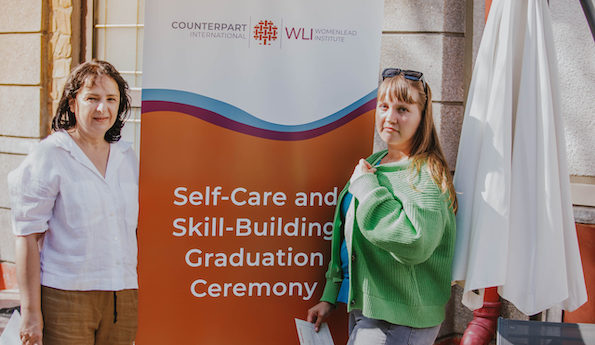The theme of the 2024 International Women’s Day is “Inspire Inclusion.” Women’s inclusion is a core part of our programming and a critical part of our operations. To set the stage for a series of posts leading up to March 8, we bring you this interview with Counterpart’s president and chief executive officer.
How have you tried to inspire inclusion at Counterpart?
Dr. Ann Hudock: International development is at its core about allowing people to achieve their potential. So much of what we’re trying to do at Counterpart is to bring people to the table to have their ideas and voices included. Sadly, it’s women who are often first left out, and yet it’s often women who are at the forefront of solving the challenges.
At Counterpart, we create networks. You want communities that are inclusive; the richness of a community is in the diversity of its views, its people, the histories, and the different challenges that people have faced. The idea of trying to use International Women’s Day to focus on inclusion gets to some core systemic issues that we could solve together.
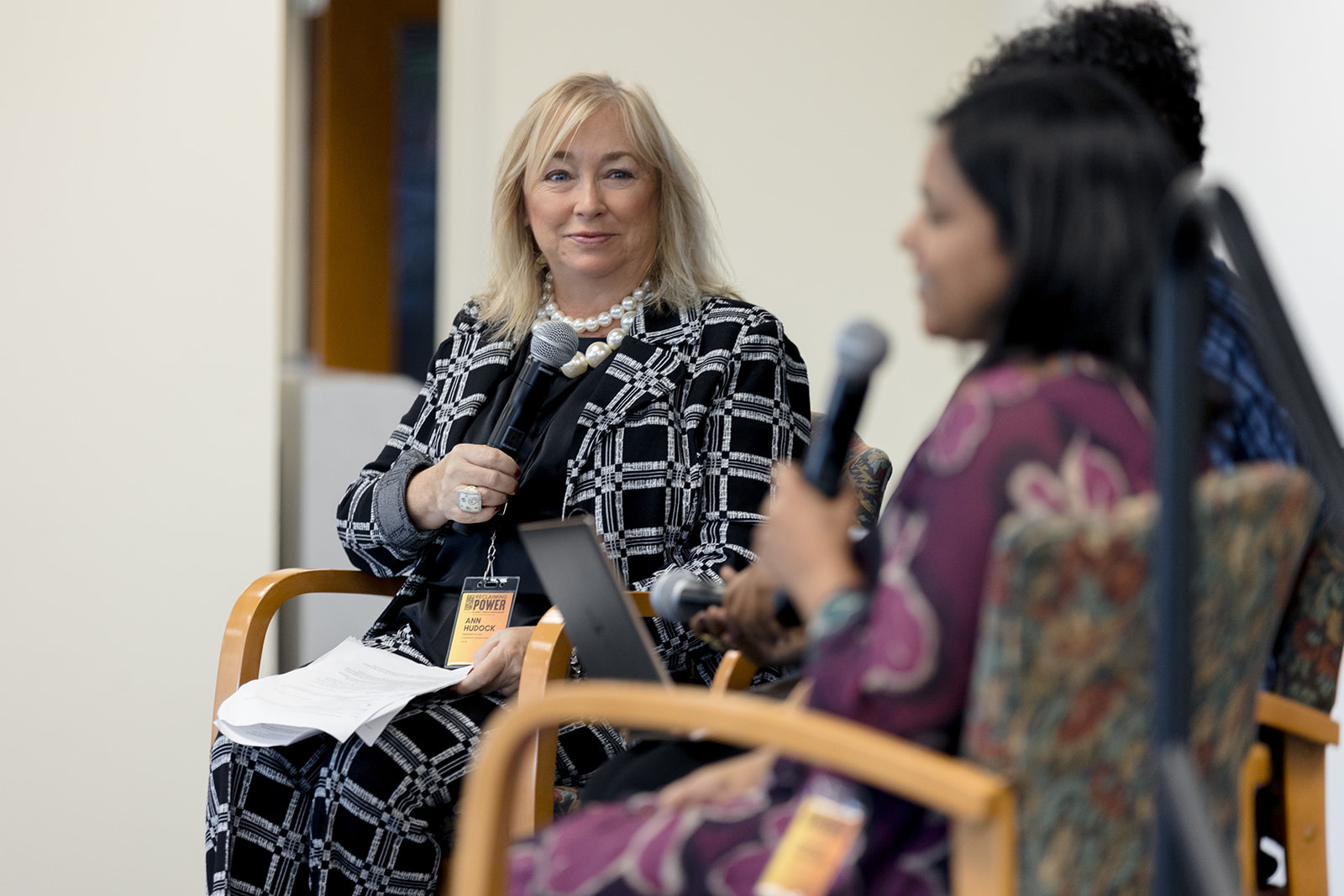
Counterpart President and CEO Dr. Ann Hudock moderates a panel at the University of Dayton Human Rights Conference in November 2023.
How does Counterpart foster inclusive communities around the world?
Hudock: When Counterpart creates community, we start with our own staff. If you’re a member of Counterpart, you’re part of a strong, vibrant, active community that extends to all the people who’ve ever been a part of our team. And that’s important because if we’re going out in the world to help communities deepen their ties, we can do that better because we do it every day right here in our own offices.
The approaches that we’ve taken in our development work are at their core about community building. If you just build a community in one particular geography, you solve a limited set of problems. But what happens if you start to connect communities that face similar challenges? One great example of how we do this is through our women’s empowerment network.
We have, across the globe, women who’ve gone through Counterpart’s women’s empowerment training going back as far as 1978. They are connected on social media. They participate in peer mentorship and training for the next generation of women leaders. When you partner with Counterpart, you become part of a global network that has influence and support, training and scale—because these challenges are only getting bigger.
Counterpart has taken steps to a be a leader in women’s empowerment. Why is it important for the organization to invest in programs and policies that support women?
Hudock: If you want to succeed and create lasting change, you have to engage women. And why is that? Look at the socioeconomic challenges in the countries where we’re working—education, healthcare, agriculture.
It’s often the women who are taking care of children’s education and advocate for household resources to be put to school fees. When you look at healthcare, it’s often women who are community health workers or providing midwife support. In agriculture, if you’re looking at where change is happening among small shareholders—particularly in Africa—it’s women who are growing the crops, managing the crops, and working to feed their families and their community.
So how does a community or a country move forward in these sectors? If you leave out the women, you’ve left out large parts of the solution. At Counterpart, we have always had women who are leading, including one of our founders, Betty Silverstein. Being vocal and visible about supporting women is critical now because women’s rights are being trampled. It’s imperative for us to stake our claim forcefully, visibly, and thoughtfully, and to create a space where other people can be drawn in.
And we can be a light for people who are living in darkness, so they can say, “this gives me hope that we’re not forgotten. There are people out there who want to support our cause, even if we in our own country right now can’t do much about it. We’re not alone.”
Do you think that the international development industry as a whole is trending in the right direction in terms of its support for women and girls?
Hudock: Donor agencies have invested more over time, and we have gender inclusive policies that didn’t exist 20 or 30 years ago.
Time and time again, these efforts fail because they get fractured. There are so many different views about what progress for women looks like—even among the women themselves! It takes a lot of power and goodwill to stay at the table when it’s an uncomfortable conversation. In this moment of time when everybody is shouting on social media and the algorithm is fed by people attacking each other, it makes the work that much harder. I think our challenge is to tune out the noise and have the discipline to sit in uncomfortable conversations and seek to understand the viewpoints of others.
At the operational level, how do you view your role as a CEO in terms of inspiring inclusion and supporting women through corporate policies at Counterpart?
Hudock: First and foremost, we’ve created a culture of inclusion. To me, inclusion is based on kindness, respect, and tolerance. You can’t just hire someone— you have to make them feel safe and understood, and then you have to act. People quickly get tired of contributing if nothing changes.
Where we have done exceptionally well is with family leave. We have more paid family leave than most organizations and we have flexible re-entry because when you’re coming back from family leave, you’re a different person. We’re really trying to be thoughtful about what it takes to allow people to remain in the workforce if they choose to do so.
At Counterpart, I want us to be an employer that sets the standard. I want Counterpart to really shake up the industry by showcasing that when you invest in families and you invest in people’s wellbeing, you will succeed as an organization. And we have the proof: we have invested in our culture, in these industry leading benefits, and in hybrid flexible working practices, and we’ve grown by more than 40% each of the past two years. Those dots are connected.



